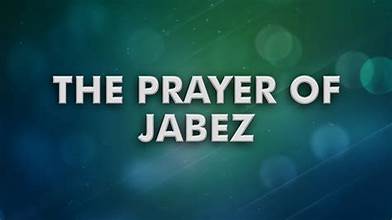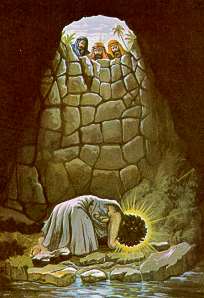Background Passages: I Chronicles 4:9-10; Jeremiah 33:3
The Antiques Road Show on PBS has become our default television program when there is absolutely nothing else to watch. If you’re not familiar with the show, hopeful people bring an item to an appraiser in hopes that what looks like a throw-away might actually be treasure.
I find most intriguing the items bought in a garage sale or sitting in the family attic for years. Some pieces are trash. Some pieces prove to be worth far more than expected.
On one recent program, a Corpus Christi family brought in a painting that hung behind a utility room door at his parents’ home for decades. Purchased in Mexico around 1930, the artist was a teenaged Diego Rivera, who would become one of the most influential Latin American painters of the 20th century.
Purchased for pesos, the painting was appraised at the Antique Road Show for $1 million.
It may be a lesson for everyone who bought one of my recent watercolors for a paltry amount. Hang it behind a door in your utility room, but don’t let your grandkids throw it away. It might be worth something 75 years after I’m gone. Another garage sale throw-away that turns out to be a hidden treasure.
I suppose that’s why I’m also drawn to the parenthetical tidbits I discover in scripture…those short, almost throw away passages hidden within the context of a broader story. I often find that the small tidbit becomes spiritual treasure.
I discovered another of those gems this week as I glanced through the early chapters of I Chronicles. Buried in the middle of a list of begats and begots that begin with Adam and end with David, you’ll find a parenthetical statement about a man named Jabez…a prayer of a righteous man hidden among the branches of an extended family tree between the sons of Helah and the sons of Kelub.
Jabez was more honorable than his brothers. His mother had named him Jabez, saying, “I gave birth to him in pain.” Jabez cried out to the God of Israel, “Oh that you would bless me and enlarge my territory. Let your hand be with me and keep me from harm so that I will be free from pain.” And God granted his request. (I Chronicles 4:9-10)
While this scriptural insert tells us a little about Jabez, it tells us more about God. It tells us of the connection between the man and the God who blessed him. I find it instructive in my life.
Within these two verses, one can find three characteristics of the kind of life that a gracious God chooses to bless.
First, we see that God blesses those who walk the path of righteousness.
Jabez was more honorable than his brothers.
Little else is known of Jabez or his family, but clearly his brothers missed the mark set by those recording the genealogy. Their lives served as a footnote to the spiritual maturity of their brother. The honor attributed to Jabez seems spiritual in nature…not so much in the physical, financial, social or political realms.
Jabez was a godly man whose moral character, convictions and conduct stood out from those around him. Jabez was honorable, living his life in right relationship with God.
Honorable doesn’t mean perfect. However, if God had a spiritual destination in mind for Jabez…an idea of who he was now, growing into the man God wanted him to be…Jabez was headed in the right direction. He walked a path marked by righteousness.
David could have been talking about Jabez when he opened his Book of Psalms.
Blessed is the man who walks not in the counsel of the wicked, nor stands in the way of sinners, nor sits in the seat of scoffers; but his delight is in the law of the Lord, and on his law he meditates day and night. He is like a tree planted by streams of water that yields its fruit in its season, and its leaf does not wither. In all that he does, he prospers. (Psalm 1:1-3)
Jabez chose to ignore the advice of men who lived only for themselves. He chose to avoid the life of intentional sin. He refused to mock God or those around him. Rather, he found joy thinking about and living according to the law of God. As a result, his impact on others yielded fruit of the spirit, finding success in the work God called him to do. Jabez was honorable.
The passage shows us that God blesses those who remain faithful through the pain life brings.
Did you catch the meaning of his name? In the Hebrew culture of the day, a male child received his name when he was circumcised eight days after he was born. It must have been an extraordinarily painful childbirth for his loving mother to give him a name that means “pain,” “grief,” of “suffering.”
The name evidently proved a predictor of the hardships experienced in his life. That his brothers were less honorable might tell us that Jabez suffered hardship at the hands of his family. Maybe he had to assume debt his brothers incurred. Maybe their dishonesty brought shame on the family name. Perhaps Jabez endured health issues that impacted his ability to live as he desired. I’m guessing he struggled and suffered in much the same way we do.
Whatever the cause of his suffering throughout his life, we see in vs. 10 Jabez prays that God would protect him from harm so he would finally be “free of pain.” He longs for a time when pain and hardship are behind him.
God has a way of blessing a life scarred with pain. The Rev. H. B. Charles, Jr., wrote that “Candles must be burned in order to give light. Wheat must be ground to make bread,” he added. “We must experience some pain to experience true blessedness.”
Turning to the Psalmist again we find these words.
It is good for me I was afflicted, that I might learn your statutes. (Psalm 119:71)
Charles wrote, “Pain is not the blessing, but it sets us up for blessing.” Puts us in position to be blessed. Opens our hearts to the lessons God can teach us through our experiences.
The final trait in the life of Jabez shows that God chooses also to bless the life of the one who talks to God regularly about the concerns of their hearts.
Jabez was a godly man with more than his share of pain throughout his life. In the middle of all of that, he prayed for God’s blessing. He talked to the source of all blessing.
Can’t you relate to Jabez? Scripture does not praise him for the things the world values. Things like wisdom, strength or wealth. Jabez is not celebrated for being gifted or accomplished. We’re not even told what made him honorable or the depth of pain he experienced. Scripture singles him out simply as a man who prayed for that which God laid on his heart.
You see, Jabez learned what we all need to learn. God answers prayer. Prayer is our connection to God who wants nothing more than to bless his people.
The famed pastor Charles Spurgeon said, “Prayer is the slender nerve that moves the hand of omnipotence.” We receive our greatest blessings after we pray within his will. For his blessing in my life, not my blessing.
This obscure snippet about Jabez teaches us a little about the life God chooses to bless. It also tells us that God’s blessings come in the form of his provision, his presence and his protection.
Look at what Jabez asked of God.
Oh, that you would bless me and enlarge my territory. Let your hand be with me and keep me from harm so I will be free of pain.
Jabez asked that God’s favor would fall on him (bless me) and his situation (enlarge my borders). God knows what we’re going through. God cares about our struggles, needs, dreams and fears. Just as Jabez prayed believing that God was ready, willing and able to answer his heart’s cry, we, too, need to pray for God’s provision with expectation of his blessing.
I initially read the passage and thought Jabez was praying for greater territory and wealth. One commentary suggested his honor would have precluded that. The writer suggested that the enlarged border would strengthen the influence of Jabez to share of his relationship to God.
That makes some sense to me. As God continues to bless us, we ought to be using all he provides to extend our influence with others as a way of testifying to the world of God’s love for them through Jesus Christ. To ask him to give us a platform to share the grace of a loving God.
Jabez asked also for the blessing of God’s presence.
Let your hand be with me…
It is a sentence that speaks to the powerful presence of God in his life. As such it complements the previous request for his expanded influence. Jabez wisely knew that God’s provision and his presence presents a problem. Incapable of managing God’s provision on our own, we need his presence and power.
It’s the Psalmist again who reinforces this truth.
Let your hand be ready to help me, for I have chosen your precepts. (Psalm 119:173)
Finally, God’s blessing is found in his protection.
…keep me from harm so I will be free of pain.
One commentary suggest that a more apt translation of the Hebrew is to “Keep me from doing wrong so I might not cause suffering in my life and the life of others.” In other words, protect me, God, from me. My own bad choices. My own hardheadedness. My own ego. Keep me from hurting myself and those you love.
What a blessing of protection that would be?
Every little segment of Antiques Road Show ends with the appraiser sharing with the owner what his “find” is worth. More often than not, during the show, the owner is overwhelmed by the moment when the throw-away item becomes treasure.
We may attempt to live an honorable life. Not perfect, but over the course of life walking in the general direction God desires for us. We may remain faithful through the inevitable suffering. We may even engage in the kind of deep conversations with God concerning the desires of our heart. Those things open the doors to God’s blessings.
The real treasure I needed to discover this week is found in vs. 10. Look at it.
And God granted his request.
You see, the point is not so much that Jabez was honorable, that he experienced the same kind of pain we experience or even that he prayed. The real treasure is that God answered his prayer…just as he will answer ours.
I’m grateful for a man pulled from the pages of obscurity to remind me that God is a God who looks for every chance he can to bless me with is provision, presence and protection.
I find rest in that thought and the words of God to the prophet Jeremiah.
Call to me and I will answer you and will tell you great and hidden things that you have not known. (Jeremiah 33:3)
Way to go, Jabez!
Praise God from whom all blessings flow!


